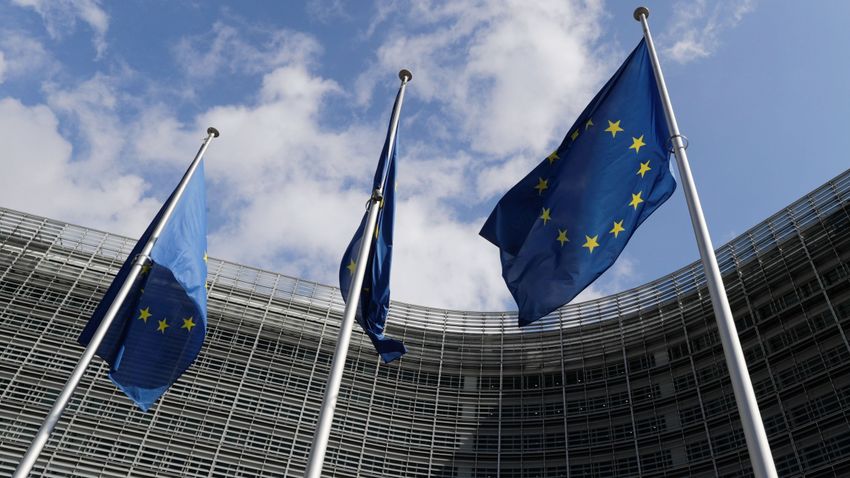Fortunately, the many obituaries written about the demise of populism turned out to be nothing more than a form of the collective wishful thinking of Eurocrats. The new movements are still looking for their place, they must transform their ideals into a strategic vision that can connect people's desire for solidarity and aspiration with a future-oriented political approach. The lesson is given!
I am sitting in a bar on Luxembourg Square in Brussels, near the Parliament of the European Union. Next to me, both of my acquaintances are political consultants: they work alongside representatives of the mainstream conservative faction of the European Parliament, the European People's Party (EPP), and they are very reluctant to hear what I am saying. I would like to draw attention to the fantastic success of the Farmers' and Citizens' Movement, BoerBurgerBeweging (BBB), in the last provincial elections in the Netherlands. This agrarian movement came from nowhere and is now so popular that it has more than double the support of the party behind it. BBB became the largest party in the Dutch upper house at the same time.
I get even more into what I have to say when I tell my friends how happy I am about the success of the Party of Finns in the current parliamentary elections. This party finished in second place, and its president, Riikka Purra, individually received more votes than the other party leaders. A large proportion of young people voted for the Party of Finns - the so-called TikTok generation - which indicates that, contrary to public perception, a populist party can also find a way to reach all levels of society.
I can see that my colleagues are about to have enough of my celebratory monologue, so I resist the temptation to remind them that in nearby Flanders - a stone's throw from where we are sitting - the separatist Flemish Interest party is at the forefront. I will also omit the fact that the Austrian Freedom Party also clearly leads in the surveys. I won't say a word about why the Sweden Democrats became the second most popular party in the Scandinavian country's parliamentary elections last year. I don't even dare to remind them that Giorgia Meloni's populists called Italian Brothers got the most votes of all the parties last fall. There is no point in rubbing salt in their open existential wounds.
However, I want to tell them that their friends who run the EPP are already so worried about the rise of a new army of anti-elite popular movements that they risk losing touch with political reality. Even more worrying is the tendency for populist politicians to adopt the prejudice of the mainstream media and see populists like the Finns Party as a blow to the political establishment. It often seems that they actually want to quarantine these emerging parties, trying to prevent them from taking a role in coalition governments. Like its socialist and green EU relatives, the EPP wants to create a world free of populists.
During and immediately after the coronavirus epidemic, mainstream political parties and their friends in the media hoped that the scale of the emergency would deter voters from voting for populist parties. They believed that the public was so terrified of the pandemic that it was rejecting radical movements and turning to the sane, technocratic, mainstream masses. During the epidemic, the enemies of populism often expressed their hope that Covid would deal with their enemies.
Western mainstream media reacted triumphantly to the supposed superiority of technocratic decision-making and the collapse of populism. "Populism has fallen victim to the pandemic," said The Times of London.
"A big reboot: support for populist politics around the world has collapsed during the Covid pandemic," reported the American online magazine SciTechDaily. The American TV channel CNBC calmly reported that populist politics had lost its support globally.
Fortunately, however, the many obituaries written about the demise of populism turned out to be nothing more than a form of the collective wishful thinking of Eurocrats. Before I can get excited while sitting in a bar in Brussels and explain why the movements that are emerging all over Europe with the old political system are still with us, one of my companions turns to me and points his finger in my face and exclaims: "You really are a populist, aren't you?!" I can see that he is imagining that I will react defensively and avoid associating myself with the letter ap. However, when I nod in response to your question, I get the question: how can an educated public writer and former university professor like myself call himself a populist? My answer is simple and straightforward: "I am a populist because I believe in democracy and the ability of people to make good decisions."
I am trying to point out that the hostility of my peers towards movements described as populist is motivated by their spiritual distance from the lives of working people, and in some cases anti-populism is a symptom of fear of the demos, the people.
They look at me in disbelief and I know instinctively that I can't find my way to them. I think we have reached an impasse because of the great gap between the thinking of the globalist-aligned elites and the vast majority of people. My friends think I don't understand the 21st century. the complexity of the 21st century world. From their perspective, my commitment to popular and national sovereignty lacks sophistication and reveals my inability to keep up with the times. They don't say it, but they probably imagine that my view is proof that I'm a chauvinist, if not an outright xenophobe. They're too polite to stamp the label "far right" on my picture, saving me the need to end this conversation with a bad taste in my mouth. In any case, despite our differences of opinion, I am committed to continuing in the future and thereby breaking out of the Brussels echo chamber.
Ever since I started my work in Brussels, I have been constantly reminded that political polarization has reached a point where democracy, and the spirit that sustains it, is under constant threat from an outwardly arrogant but inwardly insecure anti-sovereign technocracy. Their globalist imagination spontaneously leads to a way of looking at the national culture and its traditional values. They regard values such as patriotism and loyalty to the nation with deep contempt. If their will prevails, the values that form the basis of European civilization will be endangered. The only obstacle standing in the way of their plan is the rise of new populist movements.
The many reactions and attitudes associated with populism constitute what the political philosopher Hannah Arendt would have described as the search for authority before politics. This is why family, home, community solidarity, and the nation mean so much to the populist movement. They seek to gain importance by forging solidarity before politics, and this is often expressed by their stand in favor of traditional family, community life, religion, and solidarity. Their effort to reinterpret morality openly opposes the cultural norms prevailing in the Brussels opinion bubble.
If populism were to gain further ground and successfully influence the younger generations, something new and exciting could be born from it. After decades of confusion and moral disorientation, I can imagine a world in which the rise of populism could be the precursor to a new European renaissance. This will not happen spontaneously. The new movements are still looking for their place, they must transform their ideals into a strategic vision that can connect people's desire for solidarity and aspiration with a future-oriented political approach. The lesson is given!
The author is professor emeritus, director of the MCC institute in Brussels
Source: Hungarian Nation
Cover photo: Flags of the European Union wave in front of a building in the European quarter of Brussels on August 5, 2022. In August, the European Union institutions are closed for the summer holidays (Photo: MTI/EPA/Olivier Hoslet)












